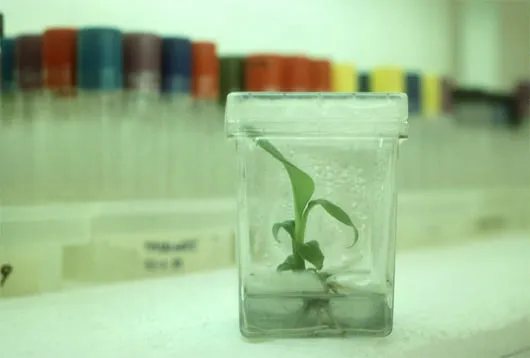Only for the title already I wanted to post this as soon as I read it on Nature.com. The newsarticle is entitled "GM crop escapes into the American wild." Brilliant! Let's walk into the world of escaped crop populations and from there cross our paths with patented broccoli, shall we? Follow me.
What happened was that in the US they found two varieties of genetically modified canola in the wild, both of which contain a different type of herbicide-resistant transgene. And next to that they also came across varieties that were resistant to both types of herbicide and contained both transgenes. In other words, back to nature really means back to nature's ways of breeding. And that is one of the reasons that US farmers need to keep their GM plants and their non-GM plants separate, because otherwise they loose control. The fact that these GM plants could have escaped into the wild means that the current tracking and monitoring regulations of GMO's are insufficient in the US.
Another food security issue that is taking place is the one of patenting plants and animals. Since* the 80's is has been fairly normal to patent a GM plant, and the numbers increased over the 90's. But after 2000 the GM request dropped and a new request rose up for patents on conventionally bred (non-GM) plants and animals.
Not only would allowing these types of patents strengthen the monopolization of the foodchain, but also endanger biodiversity and the freedom and income of farmers, breeders and researchers. And thus on July 20th this year No Patents on Seeds organized a protest at the EPO (European Patent Office) in München. For more background information on this issue you can have a look at their website.
What it comes down to is that patenting nature is by definition a cultural phenomenon. I would even go as far as calling it unnatural. But is it also unnatural if we are the ones who've created it ?


Comments (0)
Share your thoughts and join the technology debate!
No comments yet
Be the first to share your thoughts!